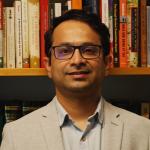Ideological Agnosticism and Selective Engagement: How India Sees the Global Cybersecurity Norms Debate

With brutal military conflict raging in Europe and the Middle East, little global attention has been paid to multilateral meetings of the United Nations Open-Ended Working Group on cybersecurity norms. Despite their relative obscurity, however, the discussions taking place at this forum—aiming to lay down rules and norms for a safe and trustworthy cyberspace—are vital today. Offensive cyber operations are increasingly being deployed against essential digital infrastructure during war and peacetime alike.
Economic Growth, Structural Change, and Women’s Earnings in India

In India, the process of structural transformation has resulted in a large change in the composition of the female workforce. Older, less educated women have exited while younger more educated women have entered. The former have received much more attention in the form of the debate over declining female labor force participation. In 1983, about 33 percent of working age rural women were in paid employment. By 2017, this had fallen to about 20 percent. Employment rates have since risen for women in rural India.
Chandrayaan and Chips: Space Lessons for India’s Semiconductor Program?

From a technology policy lens, the success of the Chandrayaan-3 mission in 2023—which saw India become the fourth country to land a rover on the moon and the first to do so near the Lunar south pole—brings up a pertinent question: If largely government-run efforts could make India a bonafide space power, can some of those learnings help India become a semiconductor power?
Aditya Balasubramanian on the Swatantra Party's Role in the Story of Indian Democracy

Over the last 15 years, India in Transition has brought readers brief, analytical perspectives on the ongoing transformations in contemporary India based on cutting-edge research across a wide variety of subjects. This year, IiT is bringing you another way to engage with insightful scholarship on India: in-depth interviews with researchers, where we hear directly from them on what inspired their work, how they are choosing to dig deeper into the subject, and how it adds to our understanding of the country.
The Politics of Numbers in Kashmir: From Plebiscite to Census (1991-2011)

The obsession with population statistics in Jammu and Kashmir (J&K) is as old as the contested accession of the state to India and the occupation of parts of it by Pakistan. It was rekindled, most recently, in 2019 by the repeal of Article 370 of the Indian constitution, which stripped away provisions that offered autonomy to J&K. While population figures play a crucial role in the politics of J&K, the quality of the data tends to be moot.
